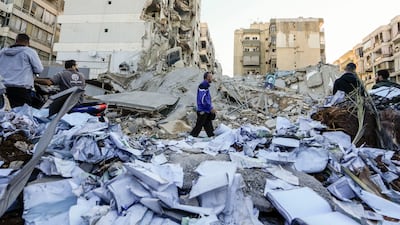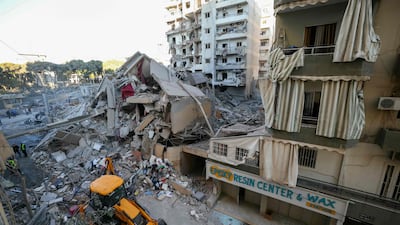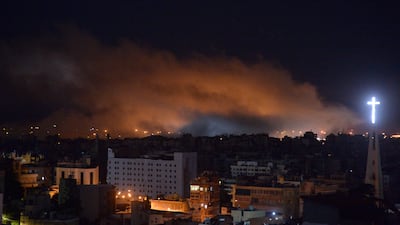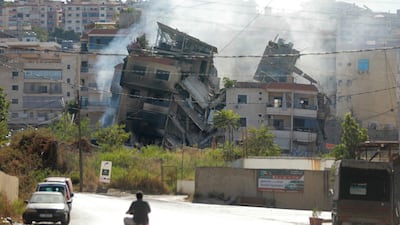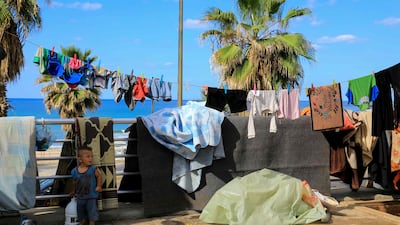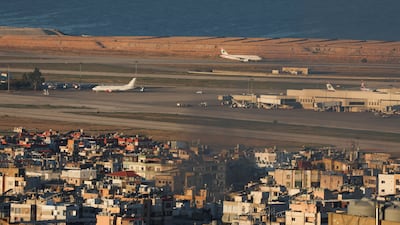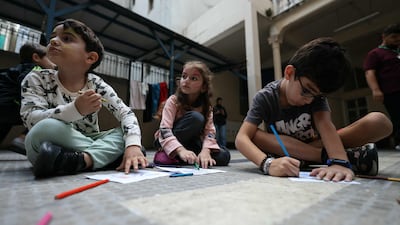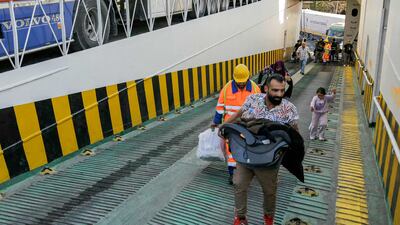Live updates: Follow the latest on Israel-Gaza
The UK announced a £3 million ($3.9 million) aid package to support Syrian refugees, particularly women and girls, who are forced to return to Syria because of the conflict in Lebanon.
About 400,000 people have fled from Lebanon to Syria since September, according to the UN, as Israel continues its air strikes and ground invasion of south Lebanon against the Iran-backed Lebanese militia Hezbollah.
Most of those who have fled are Syrians, who left after a peaceful uprising against President Bashar Al Assad in 2011 turned into a civil war.
Israeli strikes on Lebanon continue – in pictures
The package from the Foreign Commonwealth and Development office includes healthcare services at border crossings, including support for trauma and injury. It also covers “targeted protection assistance” for women and girls.
Of the £3 million in funding, £2 million has been allocated to the UN Office for the Co-ordination of Humanitarian Affairs, with £500,000 given to both the International Medical Corps UK and the UN’s population fund, which focuses on women’s reproductive health.
The International Medical Corps UK have said they had already sent medical teams to Damascus and its outskirts, including Latakia and Tartous, and the governorates of Hama and Homs.
These cities are the closest to the Lebanese border and are controlled by the regime.
Minister for Development Anneliese Dodds said the package would provide support to “those most in need”.
“The humanitarian situation in Lebanon and the wider Middle East is extremely concerning. It is critical that vulnerable civilians fleeing the conflict in Lebanon are given safe passage, and for their lives to be protected,” Ms Dodds said.
“Today’s package of emergency assistance will provide support to those most in need as they continue to risk their lives to make this dangerous journey.”
The UK has supported the Syrian opposition since the start of the civil war. It severed its diplomatic relations with the country in 2013.
It has contributed £4 billion of funding to those affected by the crisis in Syria since 2011, its largest-ever response to a humanitarian crisis.
But experts fear the new contribution, which amounts to £7.50 a person for 400,000 people, is a “drop in the ocean” compared to the needs of Syrian refugees who have returned to the country.
Syria is still reeling from more than a decade of conflict and an economic crisis that drove its remaining population to poverty.
“There's nothing to go back to. Many of these refugees have had their homes and livelihoods destroyed. There are no jobs for them, no functional services,” said Dr Zaher Sahloul, chief executive of MedGlobal, a US-based medical charity, who works extensively with Syrian refugees.
Syrian refugees say they face detention, torture and death in Syria at the hands of the regime's security services if they return – with documented cases of this happening in the past.
“There is a need for much more assistance with security guarantees from the UN agencies,” said Dr Sahloul.
This has compelled thousands of Syrians who fled Lebanon to cross into opposition-held north-west Syria, which is being bombed by forces supporting Mr Al Assad.
“They are taking unsafe routes with smugglers to get to an area that is under bombardment. That speaks volumes for the lack of safety in government-controlled areas,” Dr Sahloul said.


